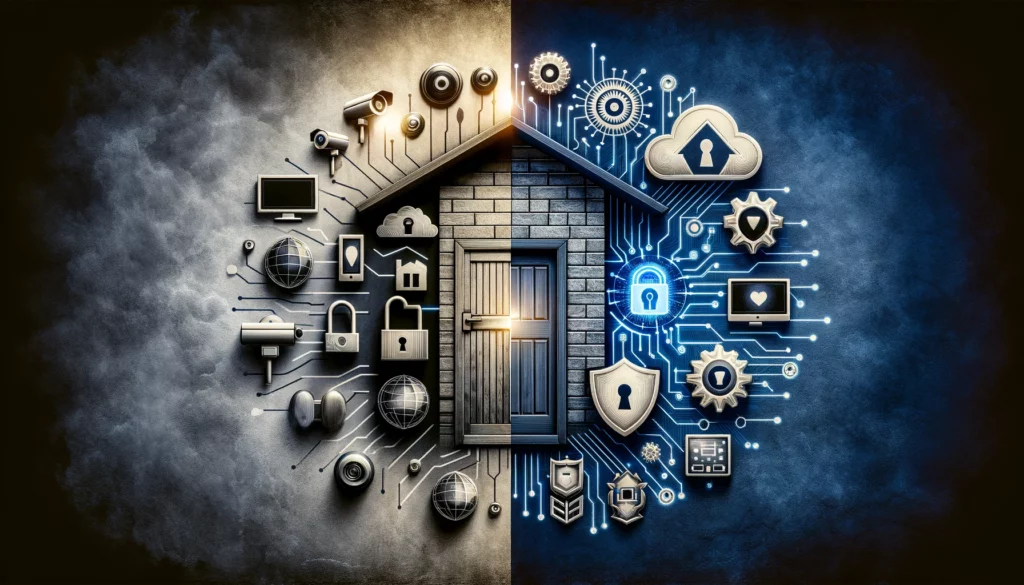Introduction
In the realm of home security, distinguishing between physical and non-physical measures is paramount. When we think about protecting our homes, we usually think of physical security measures. But it’s also important to know what doesn’t fall into this category. This blog discusses non-physical security measures, correcting misunderstandings and showing how they are important in a security plan.
Understanding Home Security Measures
Physical security measures are actions or tools used to protect your home from unauthorized individuals and prevent harm. We put these measures in place to keep intruders out and safeguard your property. They help ensure the safety and security of your home by deterring potential threats and minimizing risks of damage. Examples include locks, security cameras, motion sensors, and reinforced doors.
Contrastingly, non-physical security measures refer to strategies that don’t involve physical hardware or devices. Ways to protect your home network include cybersecurity, data encryption, strong passwords, and community programs like neighborhood watch. Such measures are crucial in today’s digital age, where threats are not only physical but also virtual.
Common Misconceptions About Physical Security Measures
A common misconception is equating all forms of home security with physical measures. For instance, cybersecurity—a pivotal aspect of protecting your smart home devices and personal information—does not involve physical devices directly aimed at deterring physical intrusions. Instead, it’s about safeguarding against digital threats, highlighting the importance of recognizing non-physical security measures.
Why Non-Physical Security Measures Are Also Crucial
Non-physical security measures play a vital role in comprehensive home security. They address vulnerabilities that physical measures cannot cover, such as hacking, phishing, or identity theft. In an era where homes are increasingly smart and connected, these non-physical measures are indispensable. They ensure that your security system is not just about locks and cameras but also about protecting your digital footprint and privacy.
Integrating Physical and Non-Physical Security Measures
To achieve optimal protection, integrating physical and non-physical security measures is essential. This approach ensures a multi-layered defense strategy against various threats.
Strong passwords and network security protect smart home devices from hacking. Locks and cameras deter burglars. Together, they form a robust security system that addresses both physical and digital threats.
Conclusion
Understanding what does not constitute a physical security measure for your home is crucial in today’s interconnected world. It’s important to combine cybersecurity with physical security measures to better protect your home.
By doing this, you protect your property and keep your digital information safe and private. Make sure to check your home security system. Consider using a combination of physical and non-physical methods to increase the safety of your home. This will help give you peace of mind.
FAQs
What are non-physical security measures?
These measures include cybersecurity for home networks, data encryption, strong passwords, and community programs like neighborhood watches. They protect against virtual threats such as hacking and identity theft.
How do non-physical security measures complement physical ones?
Non-physical measures cover security gaps that physical devices can’t, such as digital threats to smart devices and personal data. Integrating both offers comprehensive protection against a range of threats.
Why is cybersecurity important for home security?
Cybersecurity protects against virtual threats to smart home devices and personal information, crucial as homes become more connected and susceptible to cyberattacks.
Can community initiatives be considered non-physical security measures?
Yes, initiatives like neighborhood watch programs enhance security through community vigilance and cooperation, supporting both physical and non-physical security efforts.

